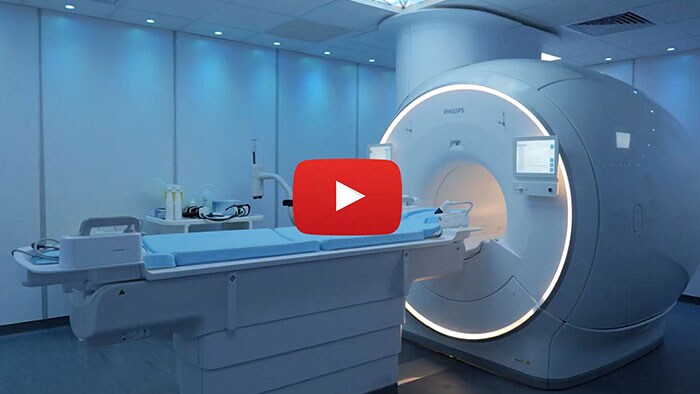FieldStrength MRI magazine
MR 5300 system delivers versatility and efficiency
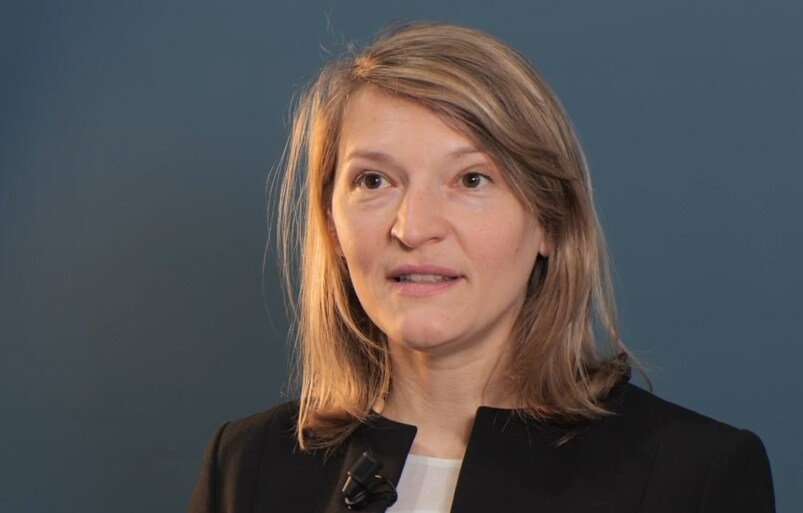
Dr. Stéphane Gellée, radiologist at Saint Augustin Hospital in Bordeaux. She specializes in liver and other digestive imaging as well as female pelvis imaging.
When Saint-Augustin Clinic, an illustrious private hospital in Bordeaux, France, decided to add a second MRI system to accommodate its high patient load, they were looking for an all around, easy-to-use 1.5T system that provides high image quality throughout the body. They found what they wanted in the Philips MR 5300 system, and began operation with the system in January 2022. Saint-Augustin’s radiologists and technologists prize the MRI system for its ability to deliver high quality imaging in a short time, as well as for the remarkably lightweight coils that are easy to position. Radiologist Stéphane Gellée, MD, shares her experiences.
We are able to have excellent image quality while also respecting natural resources, and that contributes to the health of people in two ways.”
Dr. Stéphane Gellée
Serving more patients and helium-free operation
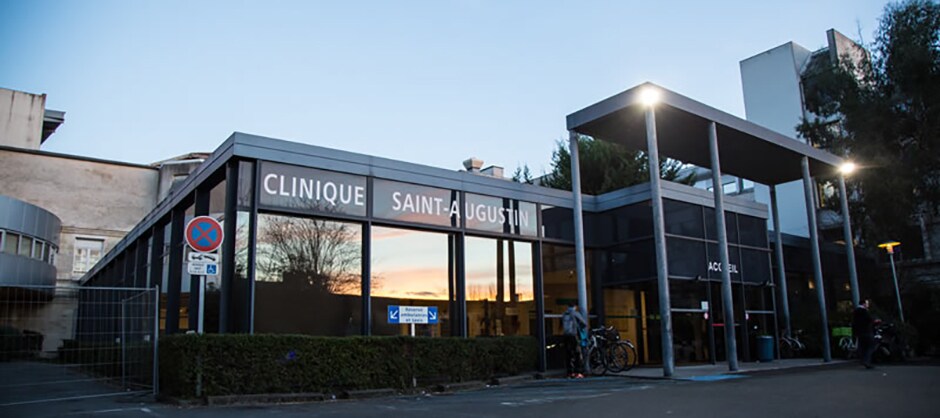
Saint-Augustin Clinique, (Bordeaux, France), a member of the ELSAN group of private hospitals, was recently named the 14th best private hospital in France by Le Point magazine. The hospital was also named first nationally in four specialties: prostate cancer, kidney cancer, bladder cancer and adult heart surgery. In addition, Newsweek recognized Saint-Augustin on its list of the top 20 hospitals of France.
Saint-Augustin Clinic chose the MR 5300 system to help it serve more patients. According to Dr. Gellée this system meets its clinical needs for versatility, high quality and diagnostic reliability, while also addressing the need for better workflow and ergonomics that enhance both patient and operator experience.
The decision-makers were also impressed by the system’s magnet that enables helium-free operation. The fully-sealed BlueSeal magnet uses just 0.5%* of the helium of a conventional system – and no refills are required.
“This system is a sign of strong ecological progress for imaging,” Dr. Gellée says. “We are able to have excellent image quality while also respecting natural resources, and that contributes to the health of people in two ways.
”Because no helium can escape, there is no need for a vent pipe, which makes siting easier and less costly. Dr. Gellée says the sealed magnet is also perceived as ‘insurance’ against quench.
I have seen no bad exam on this system. I always can answer the question asked.”
Dr. Stéphane Gellée
Consistent image quality and speed impress
According to Dr. Gellée, the hospital conducts an average of four studies each hour, totaling about 40-45 patients per day on their MR 5300. Studies are read by approximately 50 radiologists in the Bordeaux area. Dr. Gellée is especially satisfied with the image quality of the MR system. "I obtain higher image contrast and more anatomical precision than I was used to,” she says. “When I am able to choose, I request that studies be done on this system, because I get better anatomical image quality. For example, in the knees, I can get great images of the meniscus. To me, it looks as pretty as 3T.”
She values the consistent, reproducible results for all anatomies. “I have seen no bad exam on this system. I always can answer the question asked,” she says.
Dr. Gellée also appreciates the large FOV imaging that the system makes possible. “I can image the intestines in a single acquisition by using a large field of view, which is enabled by combining coils to get more coverage. The images are of good quality and look very crisp.”
I can image the intestines in a single acquisition by using a large field of view, which is enabled by combining coils to get more coverage. The images are of good quality and look very crisp.”
Dr. Stéphane Gellée
3D knee imaging
The isotropic high resolution 3D sequence in this MRI case allows for reformatting to obtain other orientations with high quality. Acquired on the MR 5300 system.
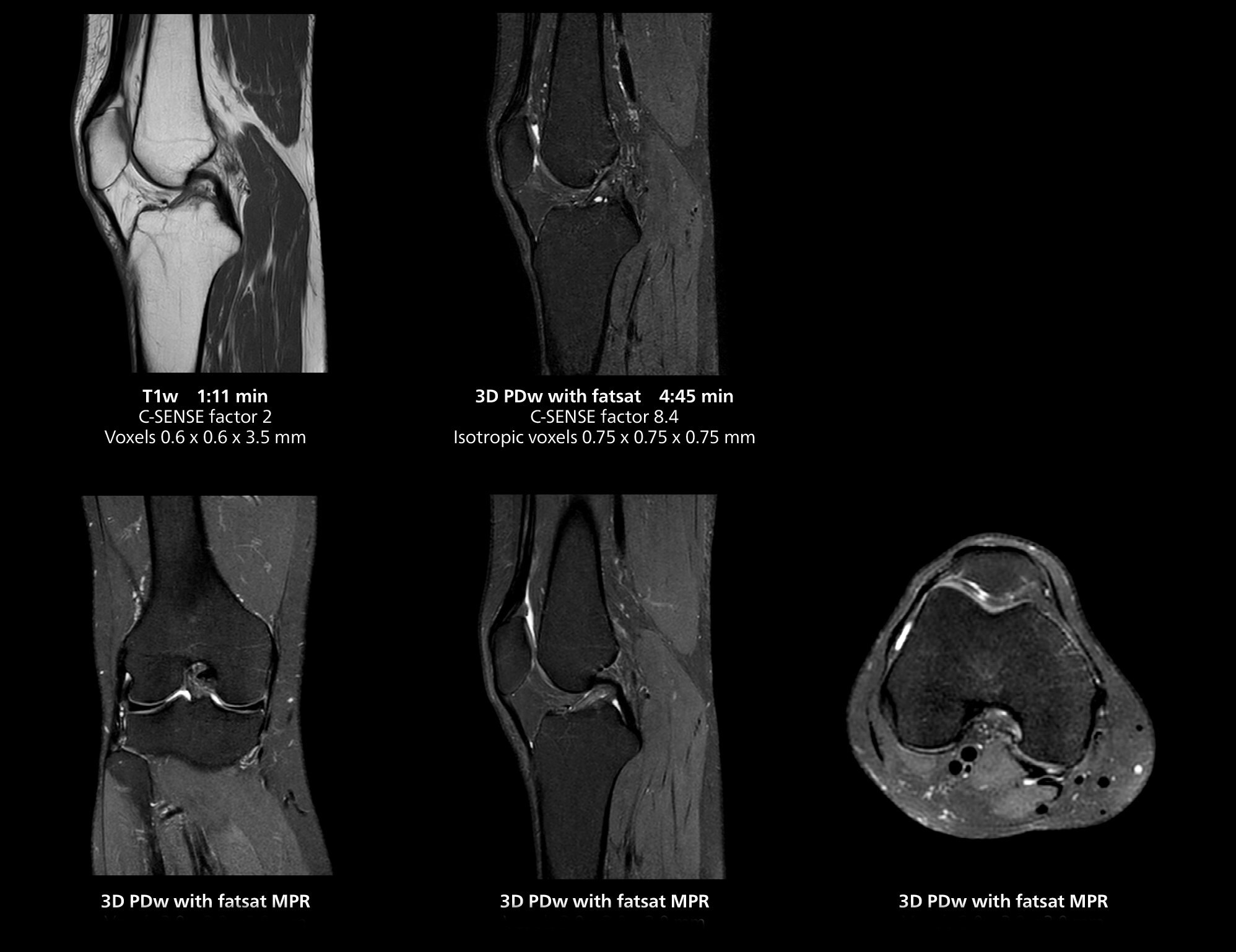
3D knee imaging
The isotropic high resolution 3D sequence in this MRI case allows for reformatting to obtain other orientations with high quality. Acquired on the MR 5300 system.
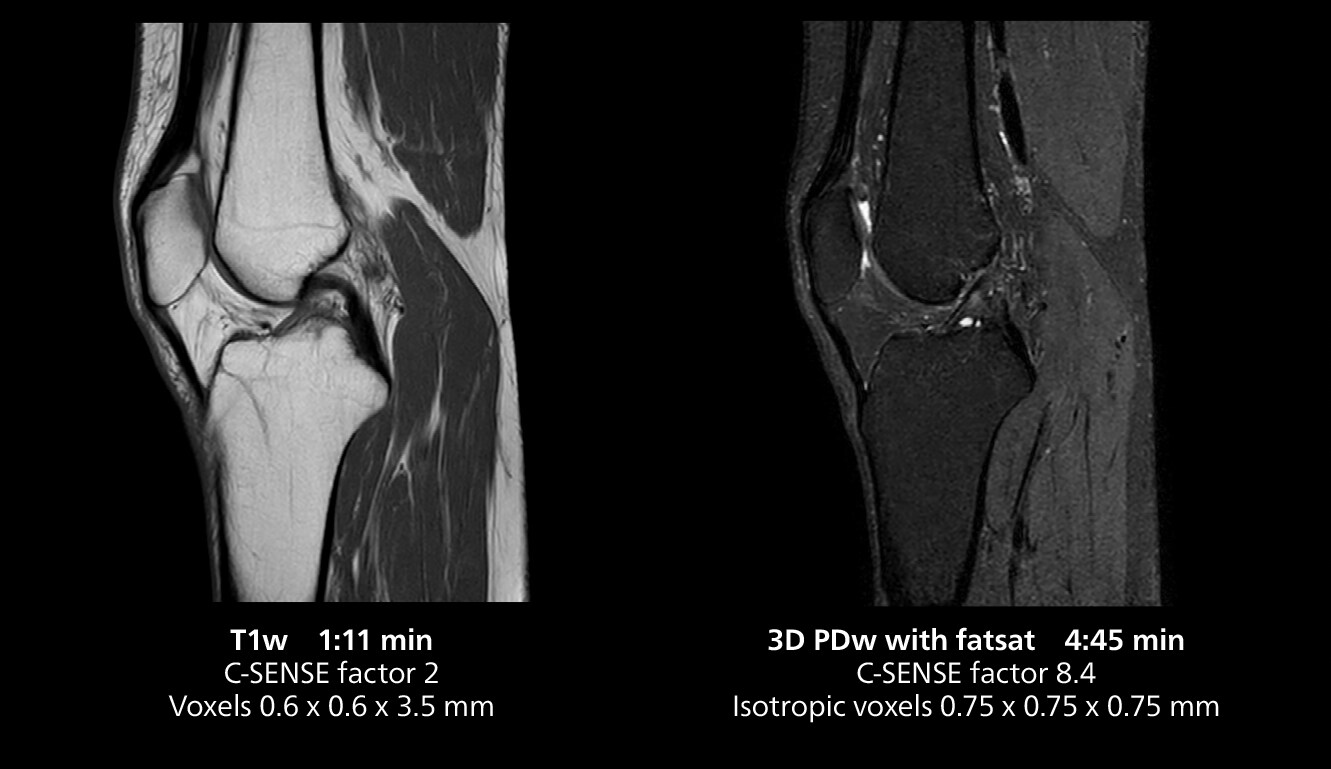
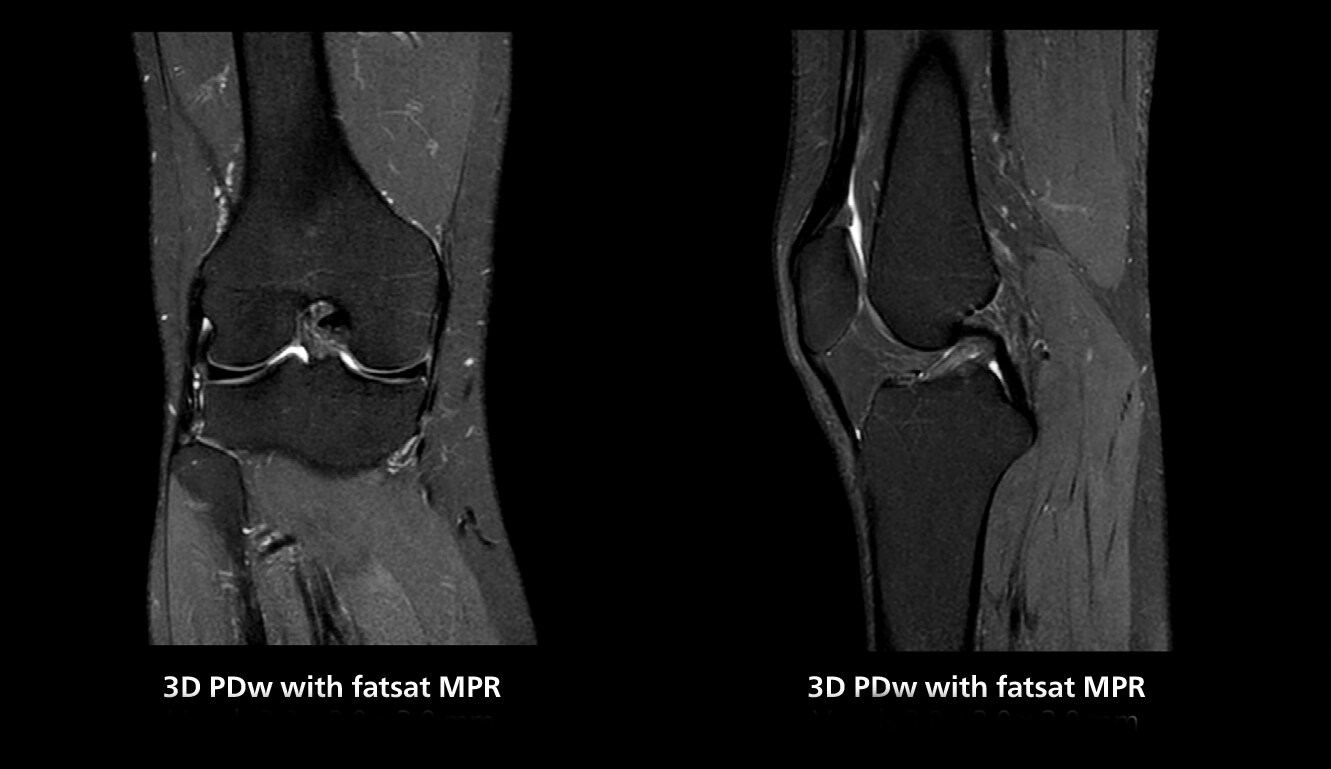
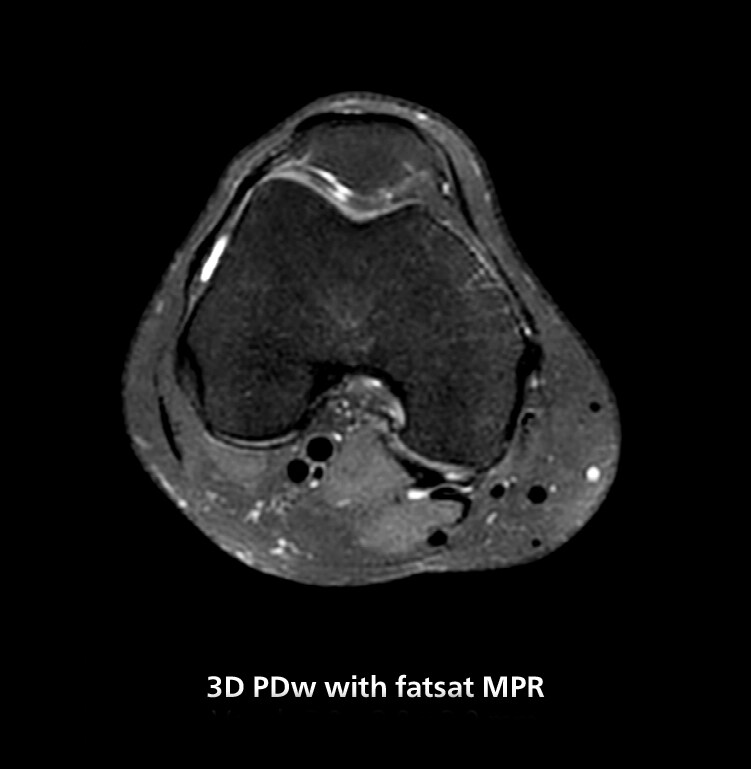
Supports management of emergency patients without disrupting schedule
Also remarkable is the high-quality black blood imaging for vascular and brain imaging as well as the fast stroke imaging. “In stroke imaging we achieve high quality diffusion, T2* with excellent homogeneity and high resolution TOF (time-of-flight) images. Even with this high resolution, the protocol is very fast, which allows us to include emergency imaging in our daily schedule,” she says. “We often can accommodate an emergency patient without disrupting the schedule of other patient’s appointments. Having the MR 5300 helps us in good emergency management in daily practice.”
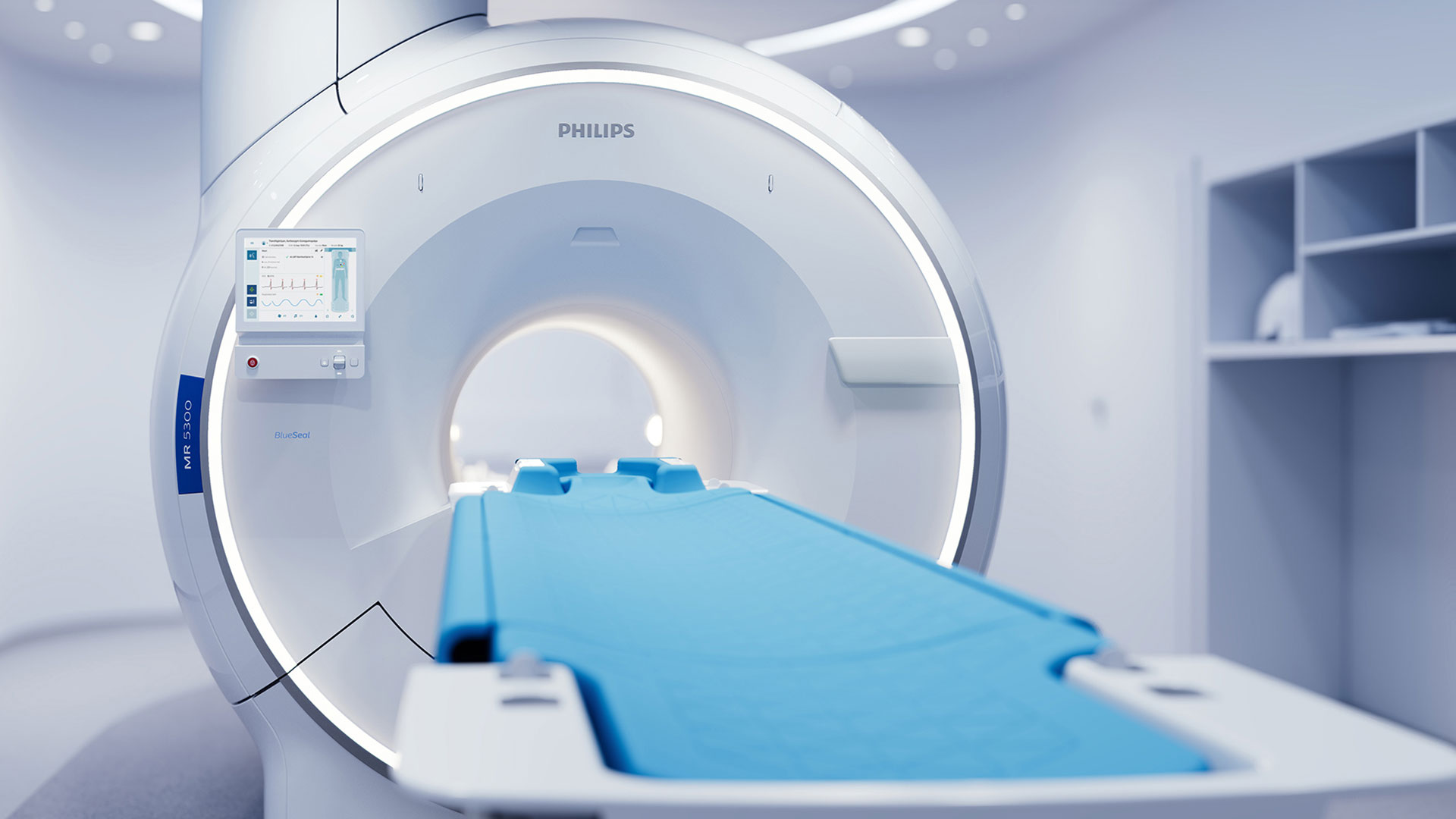

Supports management of emergency patients without disrupting schedule
Also remarkable is the high-quality black blood imaging for vascular and brain imaging as well as the fast stroke imaging. “In stroke imaging we achieve high quality diffusion, T2* with excellent homogeneity and high resolution TOF (time-of-flight) images. Even with this high resolution, the protocol is very fast, which allows us to include emergency imaging in our daily schedule,” she says. “We often can accommodate an emergency patient without disrupting the schedule of other patient’s appointments. Having the MR 5300 helps us in good emergency management in daily practice.”
Free-breathing scans provide reproducibility and patient comfort
Dr. Gellée highlights the robust free-breathing scans as “the feature that makes the biggest difference in my daily work. The 3D free breathing sequences are very reproducible, and the axial acquisition is very good. For example, in endometriosis, which is one of my focus areas, it provides high contrast and good resolution so that I can see small details. We also use free breathing for liver and pancreas imaging. In multi-phase liver studies, 4D Free Breathing delivers 3-second temporal resolution, making a dynamic scan with more than one arterial phase possible.”
In cardiac MR we get excellent diagnostic quality with 4D flow and late enhancement, without asking our patients to hold their breath.”
Dr. Stéphane Gellée
For elderly patients in particular, free-breathing protocols make exams more comfortable while providing the image quality needed for confident diagnosis. “We have a large elderly population in the city, and because long breath holds are difficult for many older patients, free-breathing is a significant advantage,” Dr. Gellée says. “In cardiac MR for example, with 4D flow and late enhancement, we get excellent diagnostic quality without asking our patients to hold their breath.”
She also uses free breathing with 3D mDIXON to obtain in-phase, water and fat images in a single scan. “It is very reproducible before and after gadolinium, which makes it useful for liver imaging,” she adds.
The free breathing sequences use VitalEye touchless patient sensing, which provides a respiratory signal without requiring a respiratory belt.
Liver imaging using MR 5300
This case includes 3D free breathing and 4D dynamic free breathing MRI of a metastasized liver. A high quality fatsat sequence with good resolution is obtained in 1:36 minutes with T2-weighted MultiVane XD.
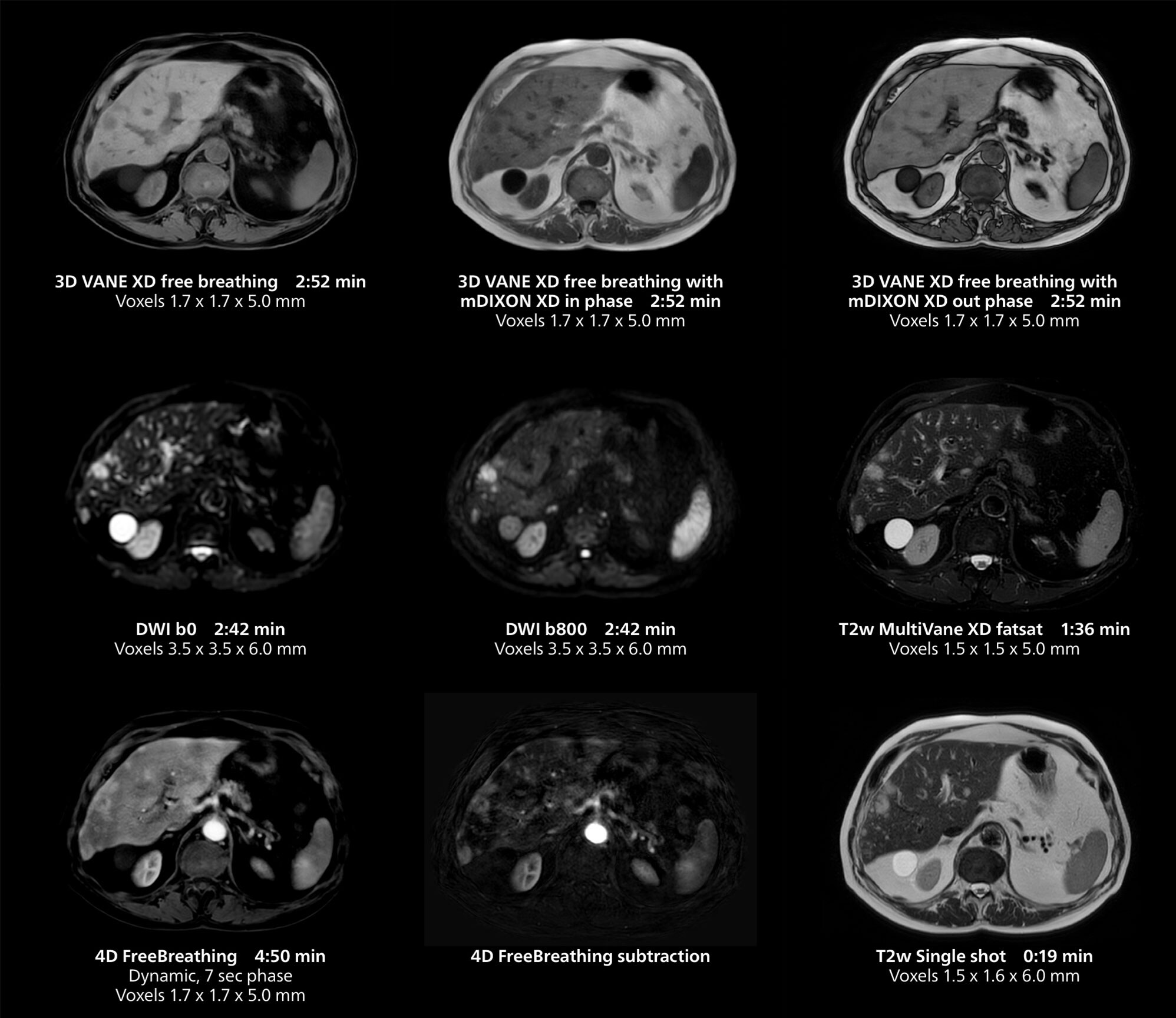
Liver imaging using MR 5300
This case includes 3D free breathing and 4D dynamic free breathing MRI of a metastasized liver. A high quality fatsat sequence with good resolution is obtained in 1:36 minutes with T2-weighted MultiVane XD.
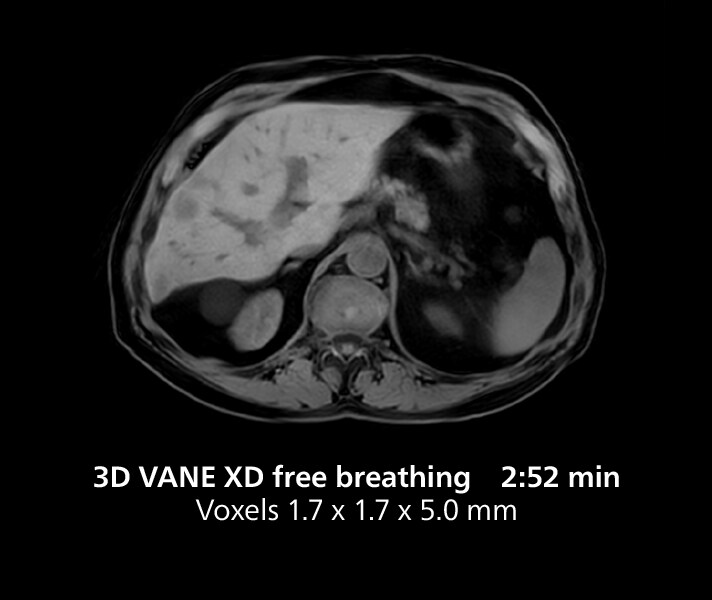
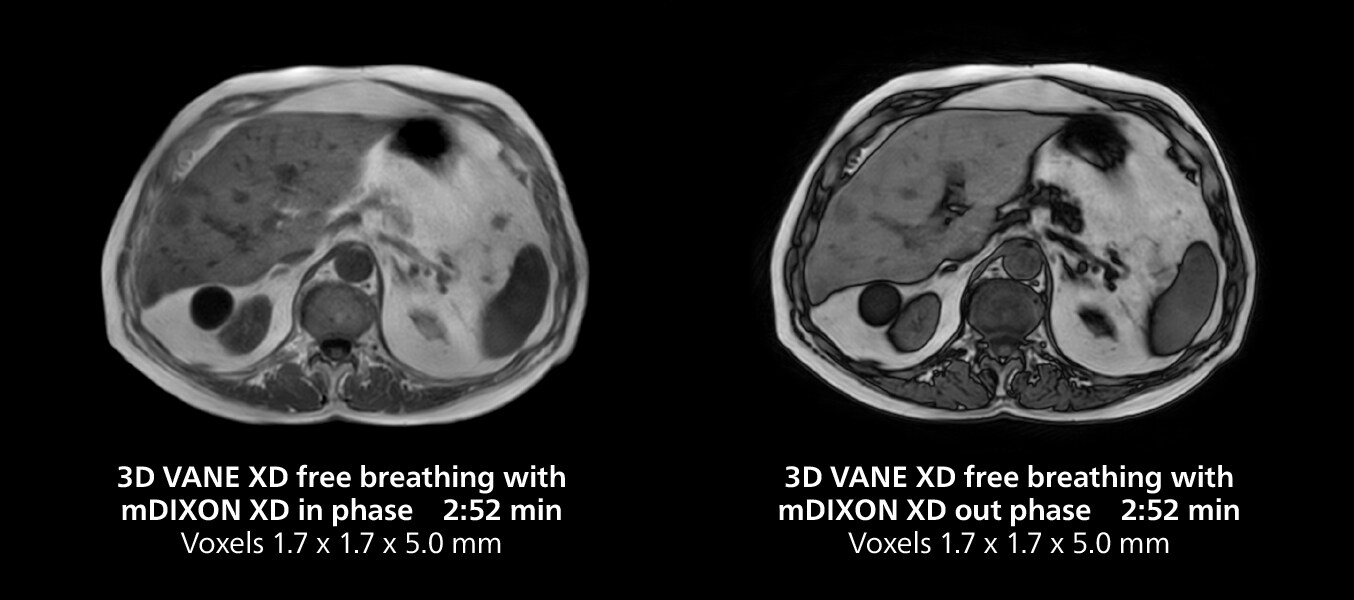
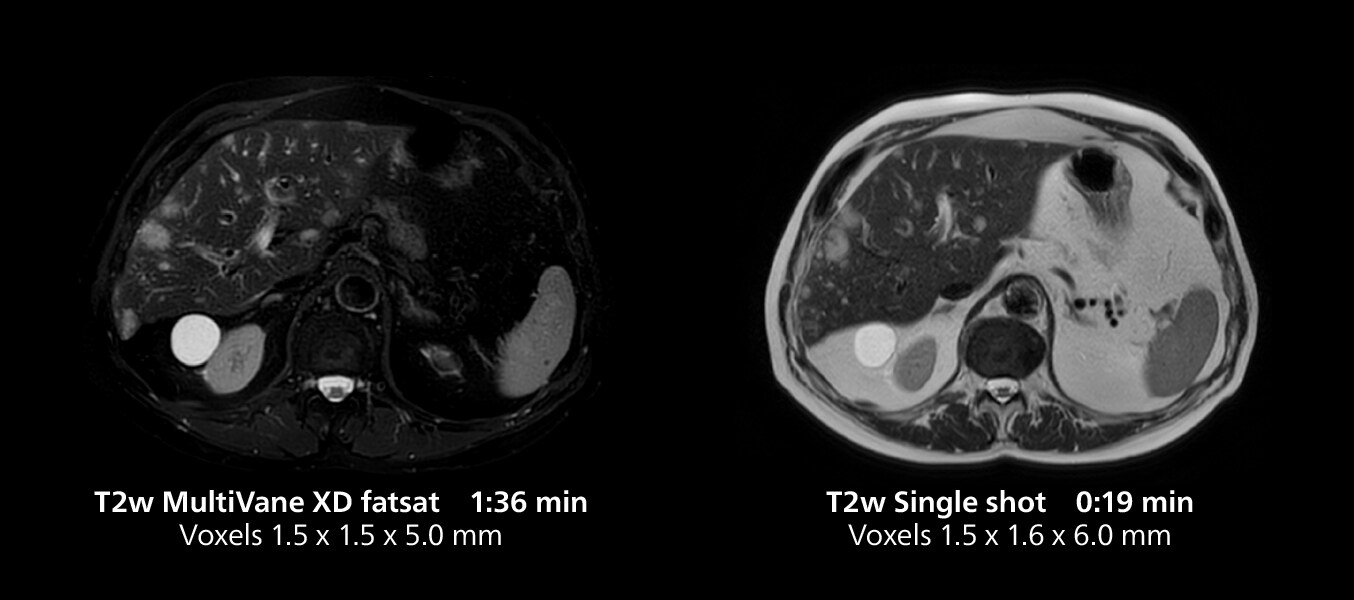
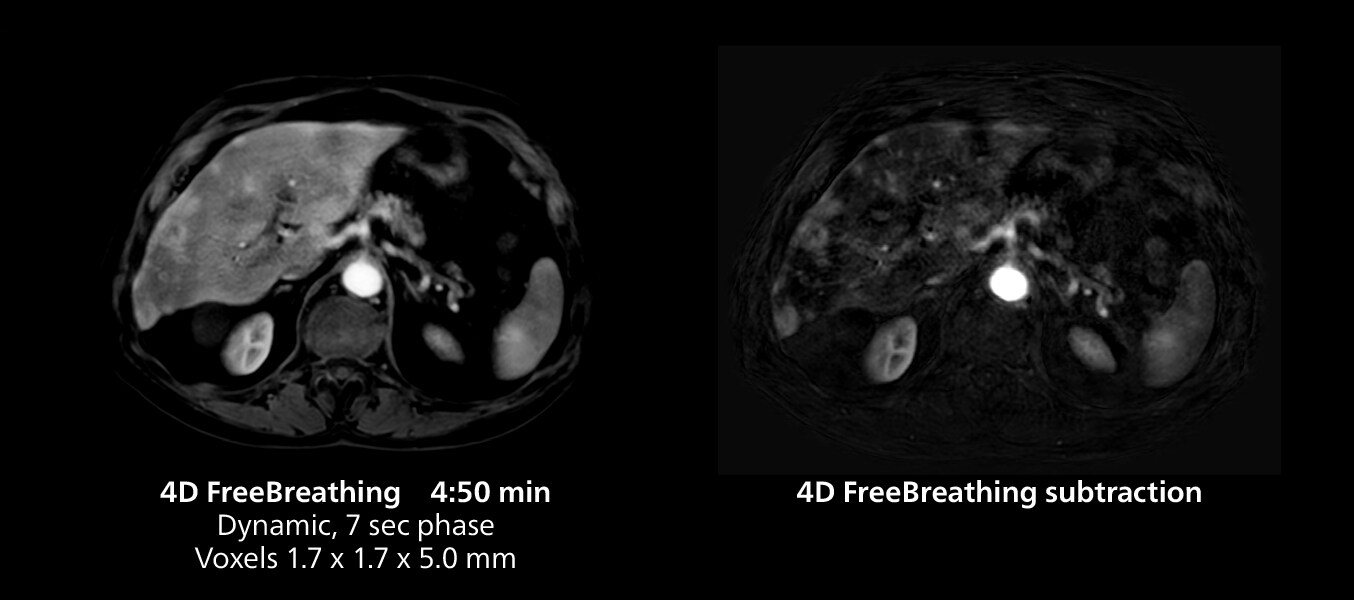
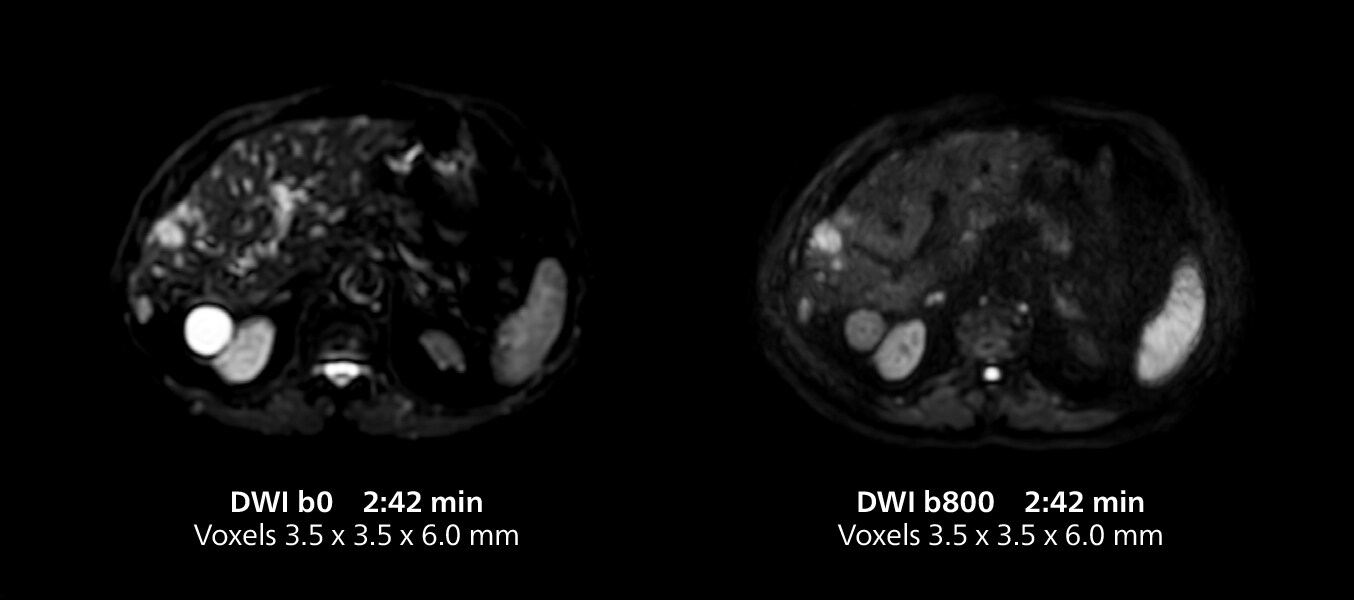
Female pelvis imaging
This MRI case illustrates good resolution and imaging quality obtained within reasonable scan times using the MR 5300 1.5T system with the anterior torso cardiac coil that allows use of a large field of view (FOV).
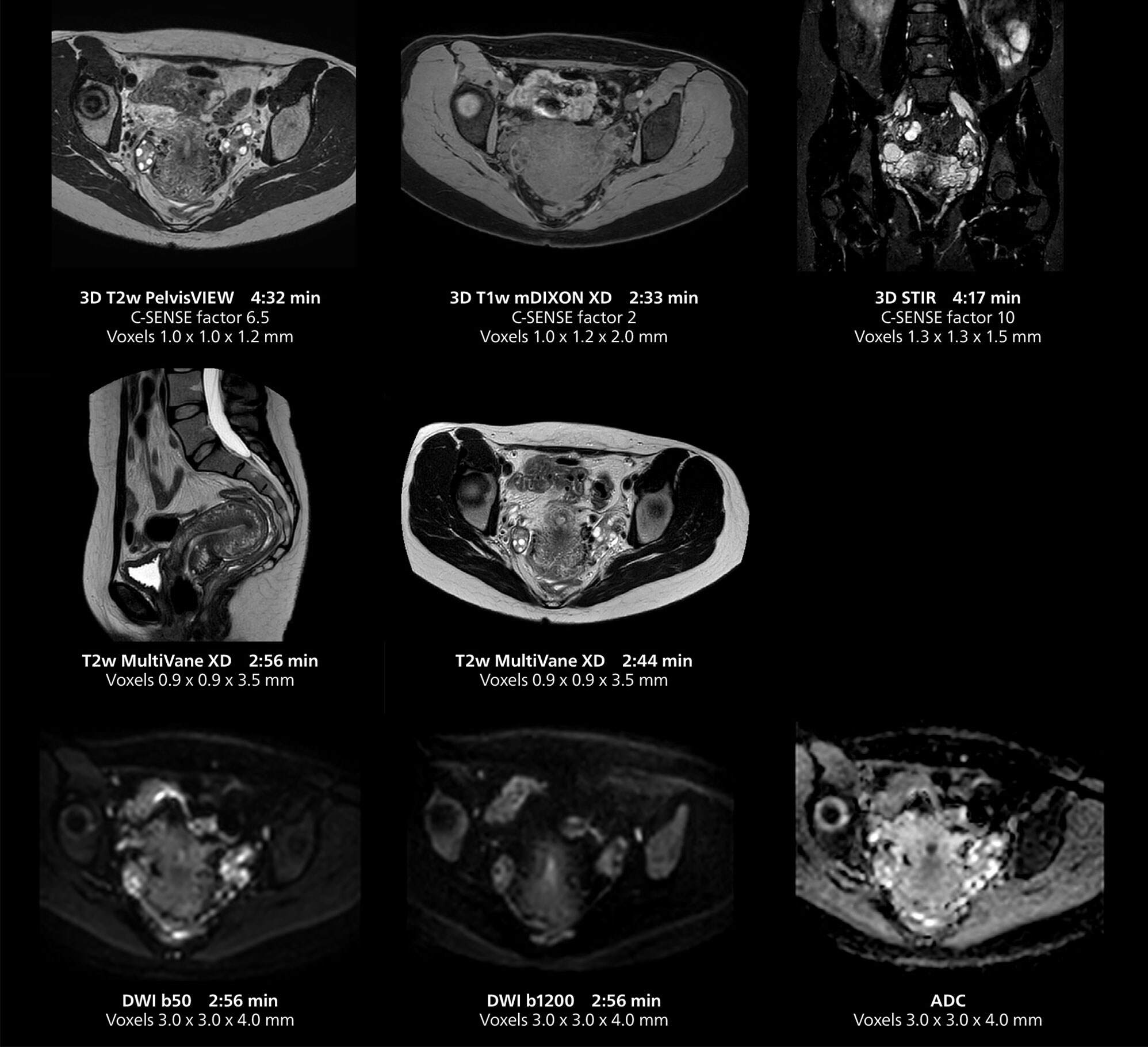
Female pelvis imaging
This MRI case illustrates good resolution and imaging quality obtained within reasonable scan times using the MR 5300 1.5T system with the anterior torso cardiac coil that allows use of a large field of view (FOV).
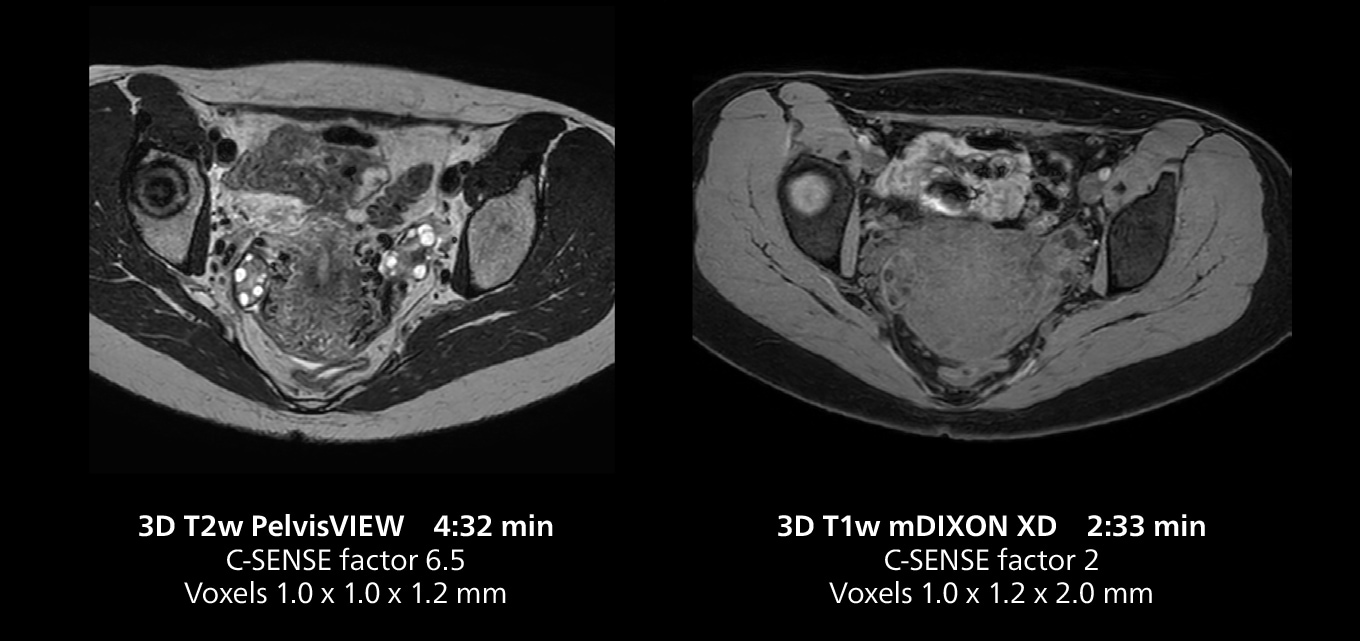
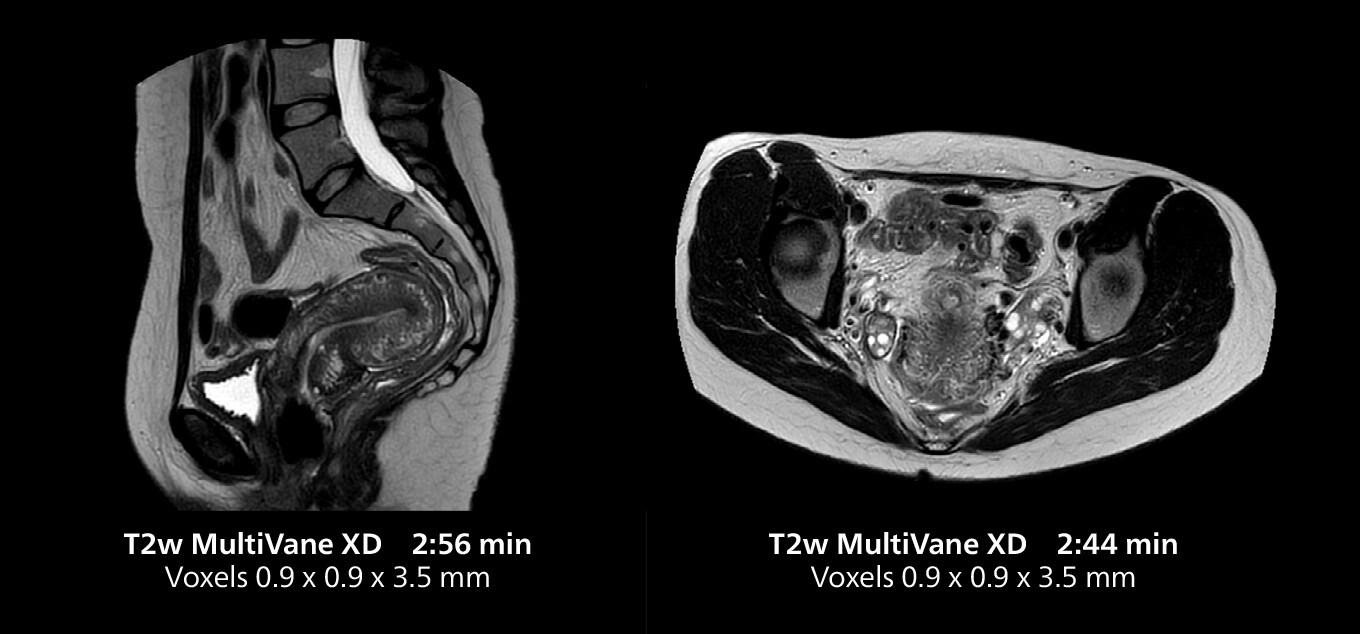
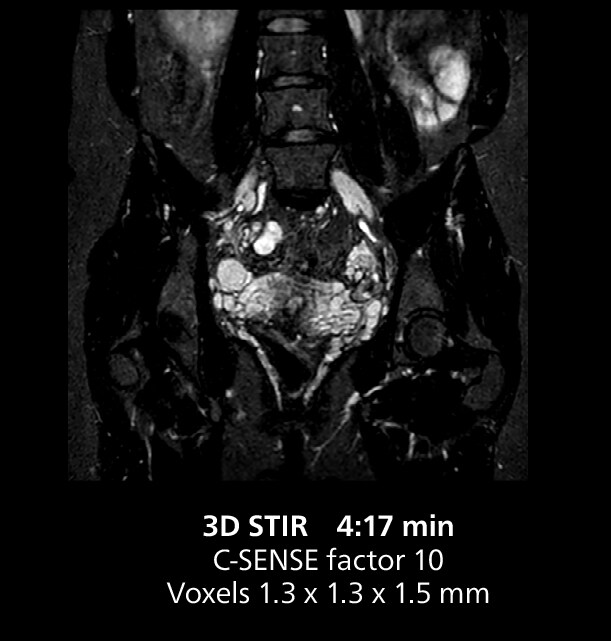

Imaging speed benefits diagnostic confidence
The MR 5300 with Compressed SENSE is up to 50%** faster for many exams. It can provide routine exams in less than 5 minutes and whole-body exams in less than 20 minutes. Saint-Augustin has taken advantage of that speed to create highly efficient protocols. The hospital’s standard stroke protocol is just about 8 minutes, and standard ENT, prostate PIRADS staging, and endometriosis studies all clock in at just about 10 minutes.***
“We have more speed in 3D sequences,” Dr. Gellée states. “With Compressed SENSE, we can replace two or three 2D scans withone high-quality 3D scan. High quality additional orientations are then obtained by post-processing of the 3D data set, thus saving scanning time.”
Dr. Gellée often takes advantage of the system’s speed to add more sequences to an exam. “When Compressed SENSE reduces typical exam duration, I can add sequences to increase my confidence in diagnosing. For example, post-gadolinium liver scans used to be axial, but now we can use a faster coronal scan. And because I know that the quality will be good the first time, I know I won’t have to repeat the sequence. That frees up time to comfortably add one more sequence,” she says.
“Having this speed is better for patients as well. For example, if a patient has a fibroma, I like to include a post-gadolinium scan, because the enhancement pattern helps in diagnosis. Without that sequence, we sometimes need another appointment to perform additional scanning, but I really prefer to do it all in just one scan session. So, adding that post-gadolinium sequence is more valuable to me than reducing exam length.”
The MR 5300 with Compressed SENSE is up to 50% faster for many exams.”
Dr. Stéphane Gellée
Salivary gland imaging on MR 5300
This MRI case illustrates imaging of salivary gland abnormalities with different sequences. Compressed SENSE allows to accelerate scanning while maintaining high quality. With mDIXON XD, different contrast types can be obtained from scanning one sequence.
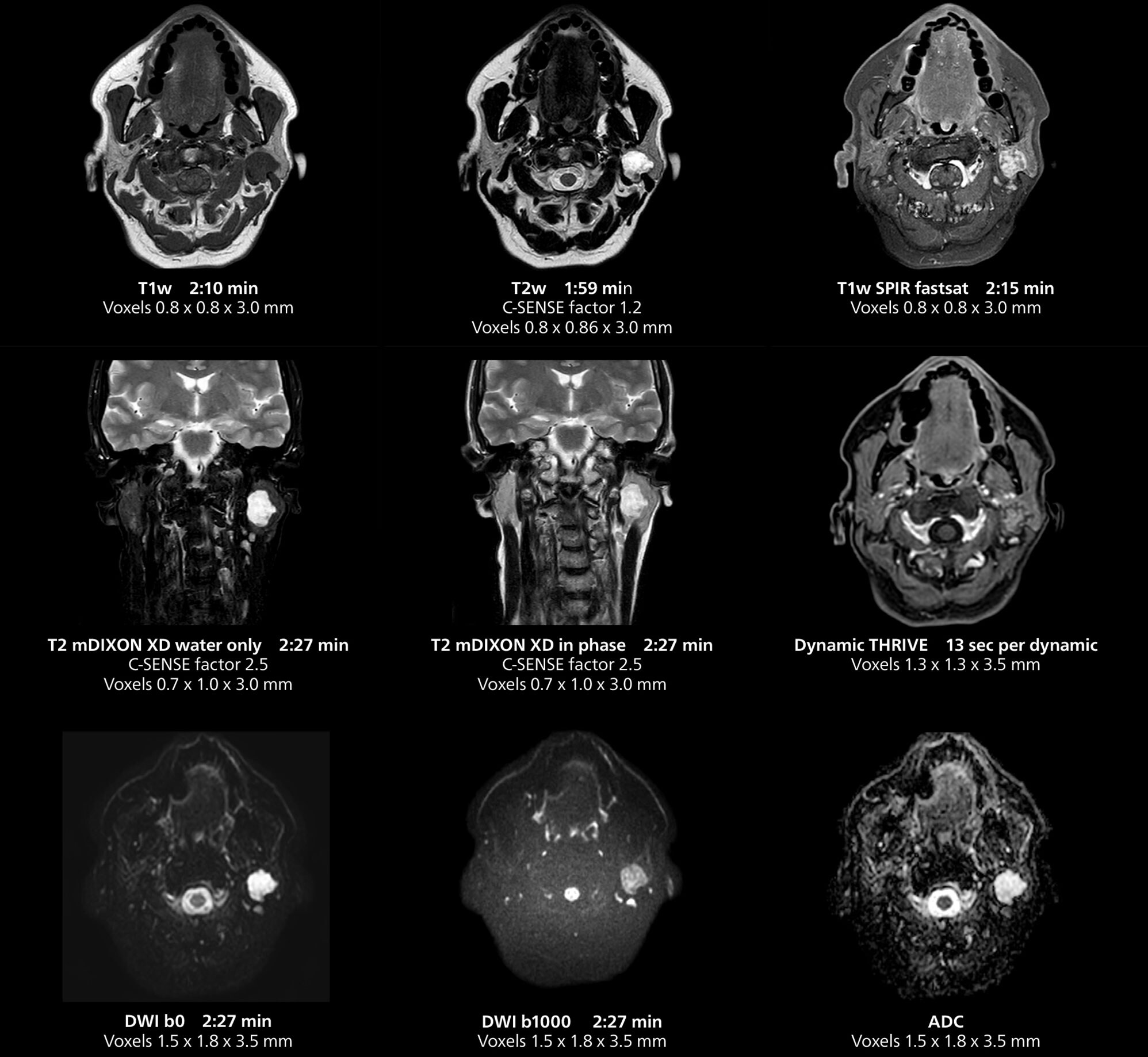
Salivary gland imaging on MR 5300
This MRI case illustrates imaging of salivary gland abnormalities with different sequences. Compressed SENSE allows to accelerate scanning while maintaining high quality. With mDIXON XD, different contrast types can be obtained from scanning one sequence.
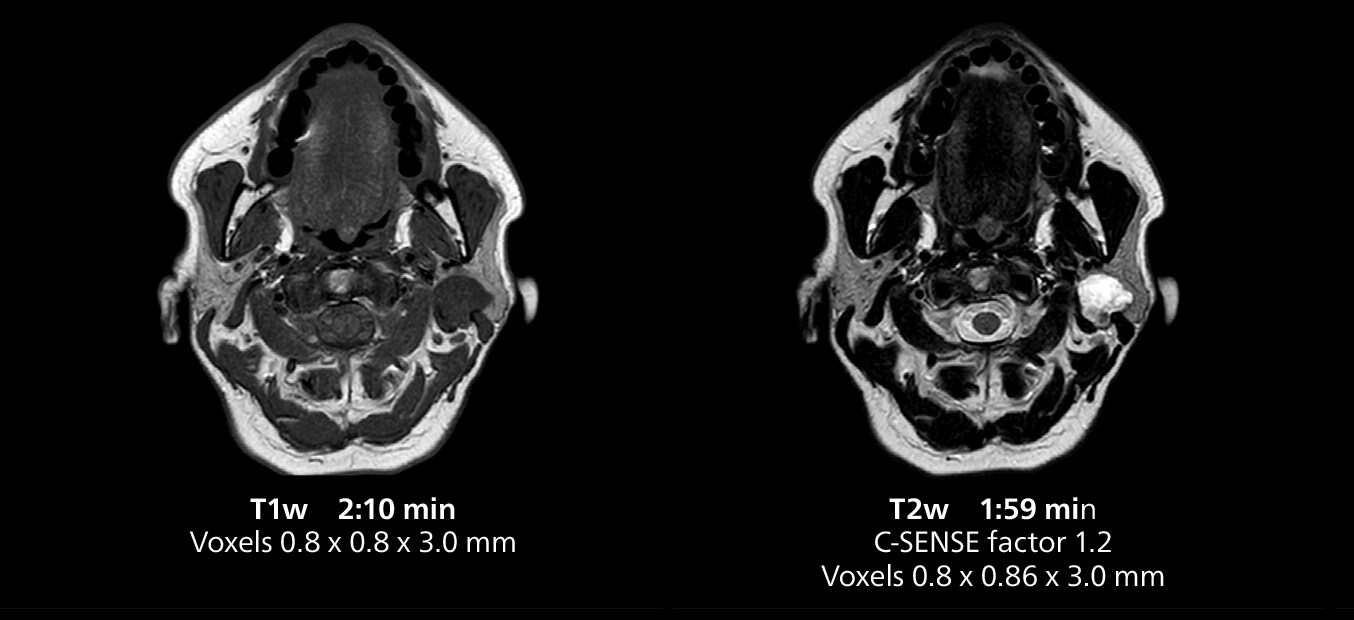
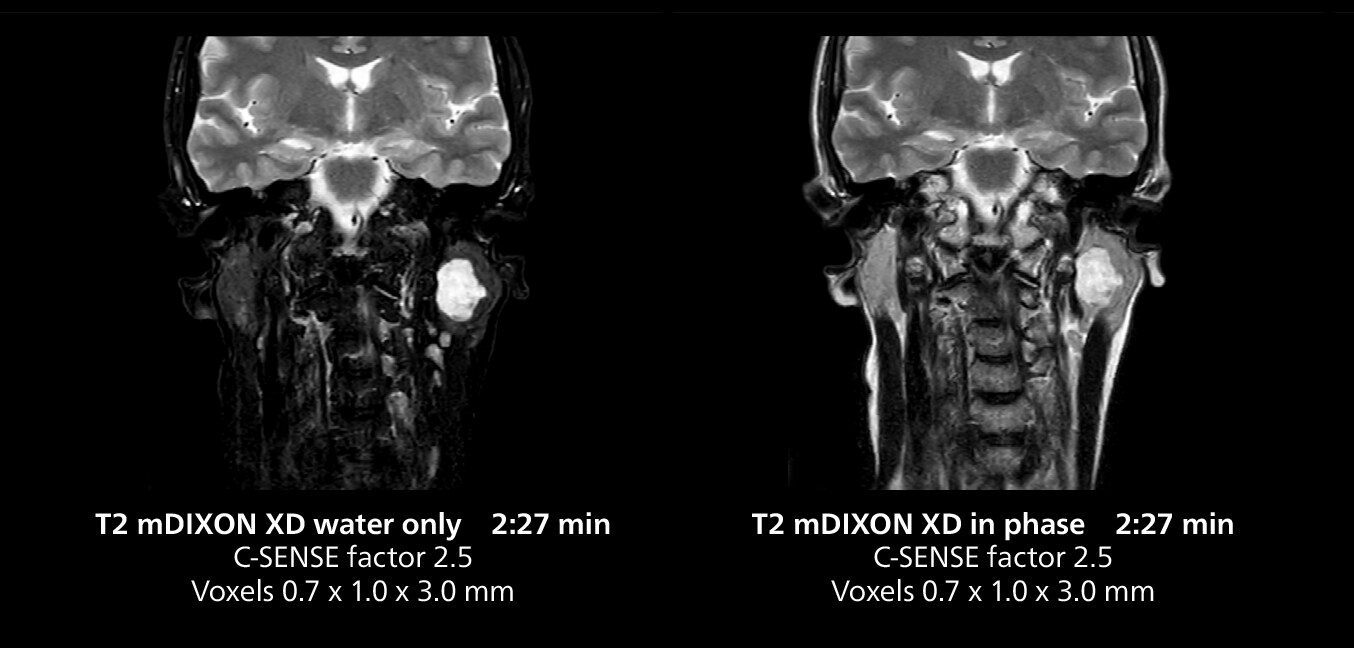
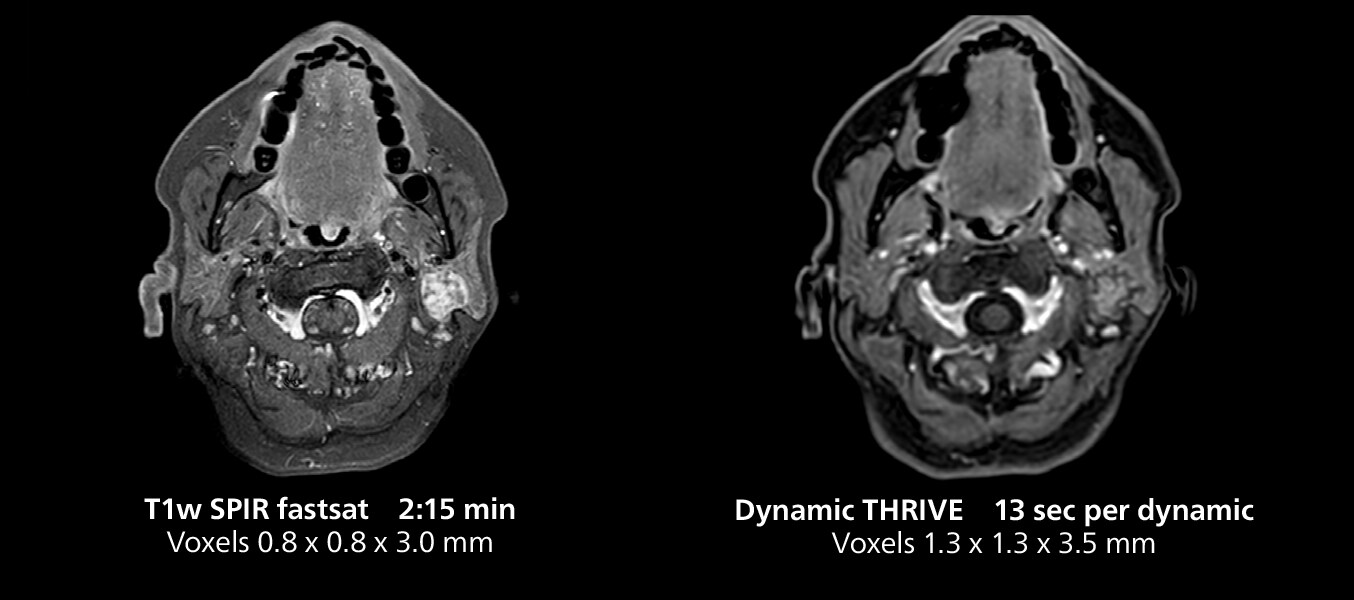

Efficient workflow and light coils improve exams for staff and patients
The Saint-Augustin technologists appreciate the fresh approach to exam efficiency that includes guided patient set-up in under a minute. The extensive set of workflow features contributes to a more pleasant working environment, and changes the experience for both staff and patient, says Dr. Gellée. “Patient set-up is faster. The technologists can begin the exam when they are near the patient, and they don’t have to stop the acquisition if the patient has a question. If we can image one or two more patients in a day, that adds up to many more patients that we can help.”
“Our technologists are also very happy with the Breeze coils,” says Dr. Gellée. "They like that these are lightweight and easy to connect. A light signal confirms that the coil is properly connected, and we can check that any time on the console as well. Coil scan also be combined to increase coverage.”
Touchless patient sensing is always ready – no respiratory belt positioning needed – and the system offers automatic centering and in-room exam starting. Automated exam planning, scanning, post-processing and automated patient coaching support the technologist in the operator room. These Smart Workflow features reduce the number of steps involved in an MR exam, so that patients – not technology – retain the focus of operators.
In this video the team at Clinique Saint Augustin in Bordeaux shares their experience with the MR 5300.
In this video the team at Clinique Saint Augustin in Bordeaux shares their experience with the MR 5300.
Efficient workflow and light coils improve exams for staff and patients
The Saint-Augustin technologists appreciate the fresh approach to exam efficiency that includes guided patient set-up in under a minute. The extensive set of workflow features contributes to a more pleasant working environment, and changes the experience for both staff and patient, says Dr. Gellée. “Patient set-up is faster. The technologists can begin the exam when they are near the patient, and they don’t have to stop the acquisition if the patient has a question. If we can image one or two more patients in a day, that adds up to many more patients that we can help.”
“Our technologists are also very happy with the Breeze coils,” says Dr. Gellée. "They like that these are lightweight and easy to connect. A light signal confirms that the coil is properly connected, and we can check that any time on the console as well. Coil scan also be combined to increase coverage.”
Touchless patient sensing is always ready – no respiratory belt positioning needed – and the system offers automatic centering and in-room exam starting. Automated exam planning, scanning, post-processing and automated patient coaching support the technologist in the operator room. These Smart Workflow features reduce the number of steps involved in an MR exam, so that patients – not technology – retain the focus of operators.
Hospital values creating a positive patient experience
Saint-Augustin puts high value on creating a good patient experience for patients. The team receives positive feedback from patients, who appreciate the comfortable memory foam mattress of the MRI system as well as the Ambient features. "We talk to the patient after each exam,” Dr. Gellée says. “They appreciate the ‘Zen atmosphere’ and they like that they can choose a film to watch. It makes the experience less ‘cold’ for them. The lighting is beautiful, and it calms their fears. Sometimes, with our other MRI, it is more intimidating.”
Another way technologists put patients at ease is by maintaining an open line of communication during exams. “Our patients like that they have the possibility to speak to the technologist during the exam. They can ask questions about what they are feeling, and these can be answered by the technologist without having to interrupt the exam.”
System is a game-changer
Dr. Gellée notes that the combination of productivity features, high diagnostic quality and potential to conduct research and partner with Philips make the MR 5300 a perfect fit for Saint-Augustin Clinic. “The MR 5300 is a game-changer in medical imaging for a large range of applications,” she says. “We are pleased with the high level of diagnostic confidence it brings us, regardless of the anatomy or the sequences used.”
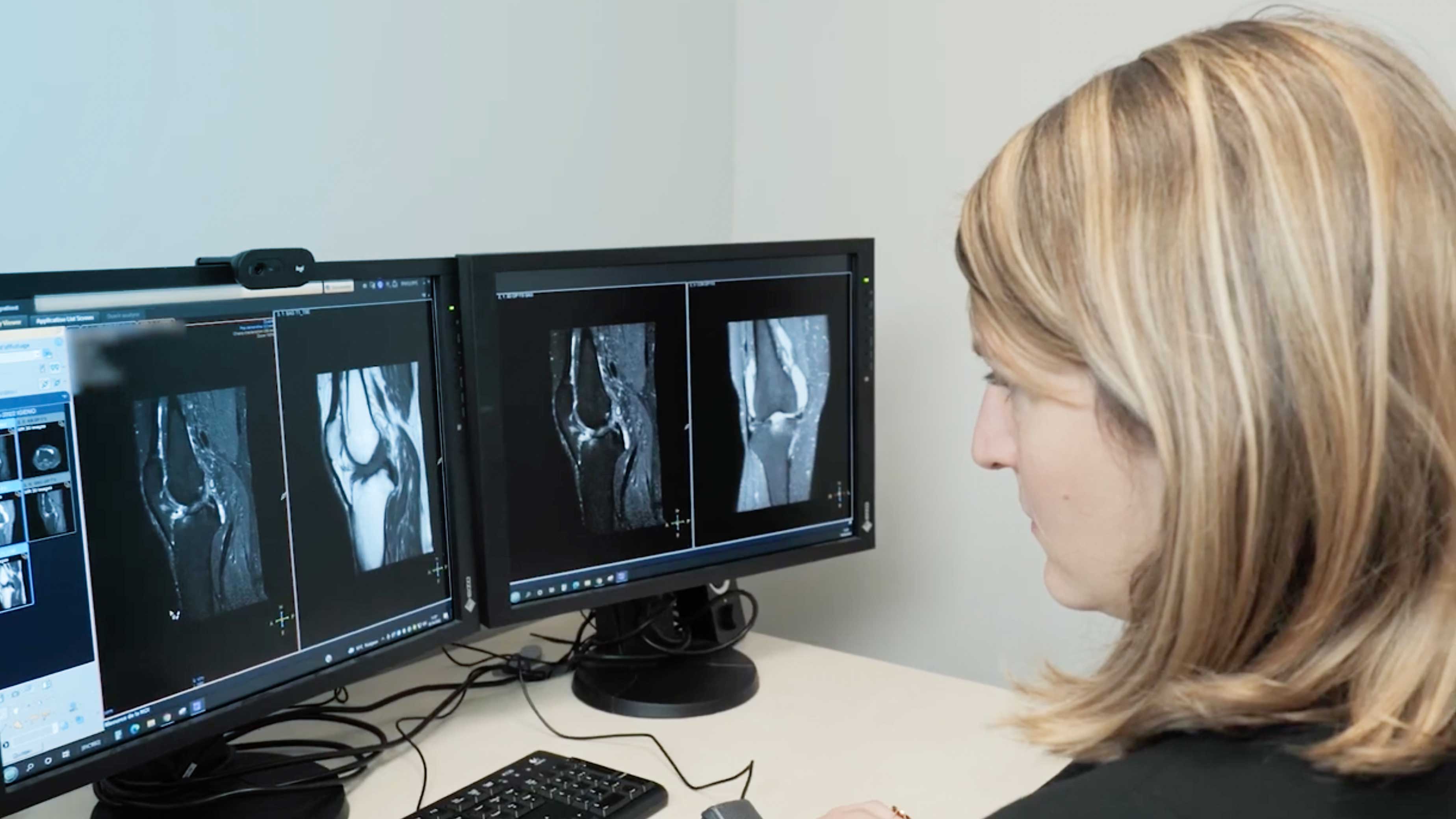
* Compared to the Ingenia 1.5T ZBO magnet ** Compared to Philips scans without Compressed SENSE *** Webinar: Transform MR productivity quickly, easily and confidently with MR 5300 at on24 Results from case studies are not predictive of results in other cases. Results in other cases may vary.
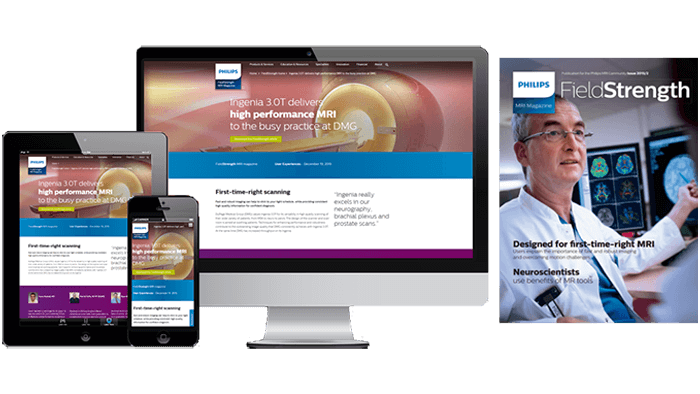
Subscribe to FieldStrength
Our periodic FieldStrength MRI newsletter provides you articles on latest trends and insights, MRI best practices, clinical cases, application tips and more. Subscribe now to receive our free FieldStrength MRI newsletter via e-mail.
Stay in touch with Philips MRI
Explore more
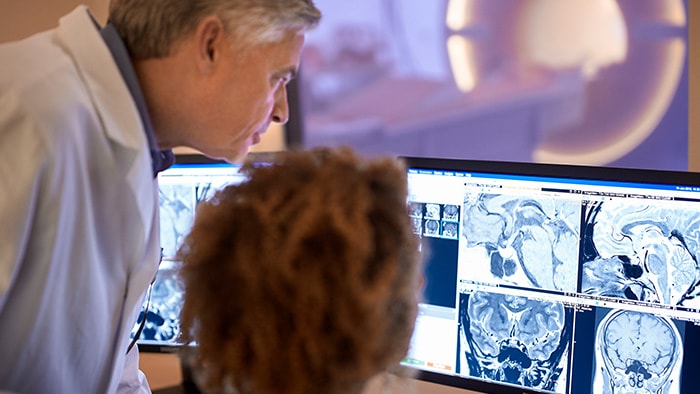
Improving MR operation helps staff and productivity
In MRI, the multitasking technologists are key to a successful high quality service and are critically valued by patients and referrers. Specific pain points emphasize the need for new approaches.
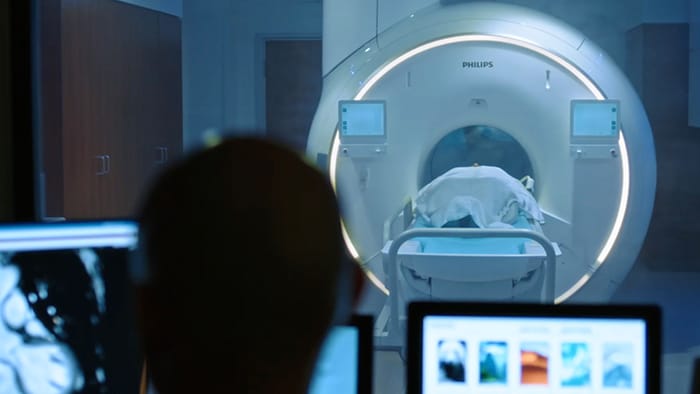
Institute sees boost in MRI quality, speed and patient comfort
Miami Cardiac & Vascular Institute benefits from the advantages of Ingenia Ambition with BlueSeal magnet, designed for helium-free operation.
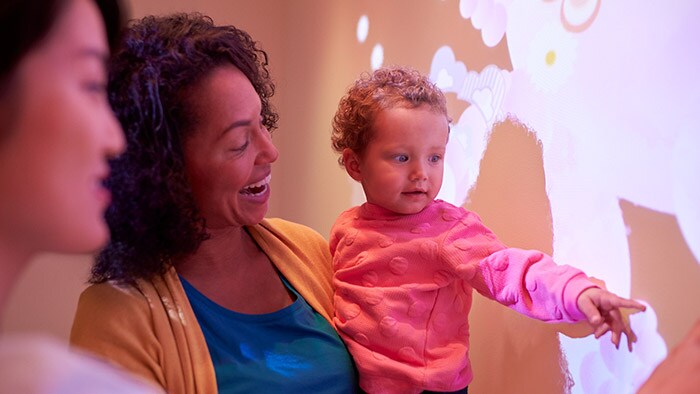
A leap in pediatric MRI confidence at Altona Children’s Hospital
While the room lighting and the in-bore audiovisual experience help their patients feel at ease, the experienced staff takes advantage of the excellent image quality and the flexibility to serve their very diverse patient group.
